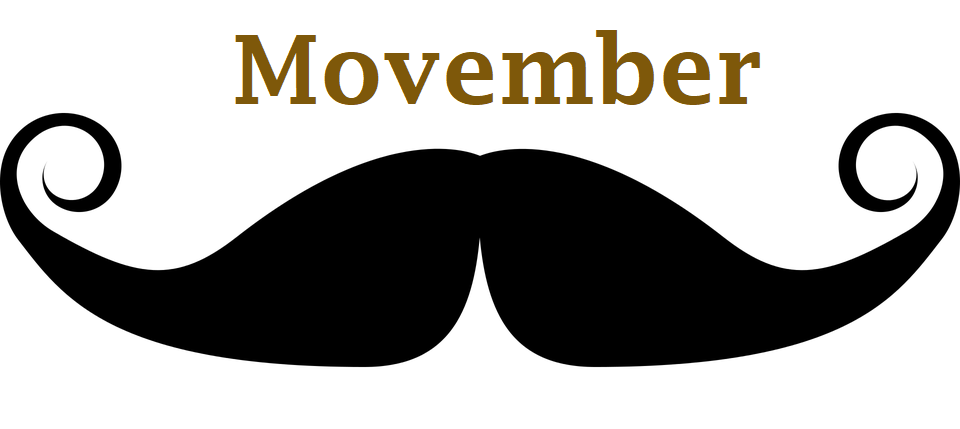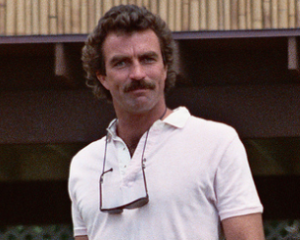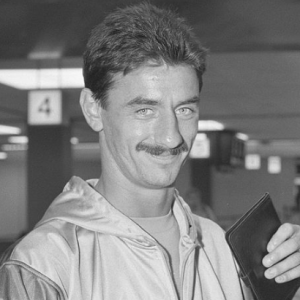 Happy Movember everyone! Movember is the annual moustache-growing charity event that takes place every November. The Movember Foundation raises funds to support the fight against men’s cancers, while raising awareness for men’s health.
Happy Movember everyone! Movember is the annual moustache-growing charity event that takes place every November. The Movember Foundation raises funds to support the fight against men’s cancers, while raising awareness for men’s health.
Although many of us are in lockdown right now due to the Coronavirus pandemic, we hope you can still enjoy this famous November event and wear your ‘taches with pride.
Many universities and colleges are joining in the event this month with students either growing their own moustache or wearing a false one. As English language teachers, we can get in on the act by raising awareness for the charity event in our lessons. Now where is my stick-on curly ‘Poirot’?
How to Bring Movember to the EFL Classroom
Movember is a great month filled with mustachioed antics, all held in support of a fantastic cause. A creative way to involve your EFL class with the campaign is to discuss facial hair trends in the UK – or trends in the country where you are teaching.
Think about hair trends throughout the ages, from full beards to twirly moustaches, designer stubble and goatees (we miss those 1970s ‘taches!)
It is interesting to see the decline in facial hair in UK culture. Fashion dictates what kinds of moustache or beard are trendy. At the moment, full beards are making a big comeback and many famous men are sporting a proud beard, including Prince Harry.
However, lone moustaches just don’t seem to be hip (sorry, mustachioed language buddies) – but they certainly can be. Check out these pictures for examples of past masterly moustaches:
Here is the actor Tom Selleck playing Magnum, the famous 1970s TV detective, rocking a full ‘tache:
And of course Liverpool football star Ian rush, in his heyday:
ITV’s dapper private detective Poirot is one the most famous curly handlebar moustache wearers:
There are even competitions devoted to the best beards and moustaches. These guys take moustache and beard growing to amazing lengths – literally – and spend hours grooming their facial hair to perfection.
If you are thinking of growing a moustache for Movember, or if you are looking for a stylish stick-on variety, you can get great inspiration from the annual Sunshine Coast Beard and Moustache Championships.
In fact, just as we thought that beards are back and moustaches are passé, there are rumours that the tables could be turning.
There have been reports that suggest the recent rise of the full beard is over and ‘taches are set to be the next big thing in facial hair fashion. So keep your eyes peeled for celeb moustaches over the coming months!
Beard and Moustache Vocabulary
English vocabulary related to beards and moustaches is rich and varied. Not only is facial hair an interesting area of study for reasons of social and fashion history, it is also a topic rife with great new English vocabulary.
For example, here are a few choice words related to facial hair which are ideal contenders for slipping into a gap-fill exercise, comprehension article, crossword puzzle or bingo game in your next English language class:
| Beard | Chin |
| Full beard | Facial hair |
| Goatee | Side burns |
| Moustache | Stubble |
| ‘Tache / mo | ‘Designer’ stubble |
| Handlebar moustache | 5 o’clock shadow |
| to shave | Aftershave |
| Shaving cream / foam | Clean shaven |
| Razor blade | Trim |
| Disposable razor | Grooming |
| Electric razor | Smooth / rough |
English Vocabulary Related to Beards
Introduce these words in a gap fill exercise or let students create their own story using the vocabulary. This could also be a good way to introduce some humour into the class as students describe a selection of impressive dream beards.
This also gives students the chance to add their own descriptive words to enliven their stories, such as colours, textures and shapes.
Presenting Beard Vocabulary
Many new teachers ask how to present new words in a language class. You could bring in pictures to give students the opportunity to discuss celebrity beards and facial hair.
This class could also be used as a springboard to talk about appearance in general, such as facial features or to teach vocabulary about clothes.
This is useful as a class topic for beginners but it can also be used in an advanced language class to discuss other related themes, using more sophisticated words and phrases or slang terms.
Appearance and the Media
For example, the discussion could use Movember and appearance-related vocabulary as a way to start talking about appearance and the media.
Students could discuss the idea that the media’s obsession people’s appearance, particularly in the ‘red top’ tabloid newspapers and on social media can be damaging to society.
Students could be split into groups to have have conversations about the topic before reporting back to the wider group. This kind of advanced discussion will require more input and creativity from the student.
Share your thoughts
What are you doing for Movember?
Is your school, college or university participating in any fund raising events?
Have you grown your own ‘mo’ – real or false?
Teachers, can you think of any more beard-related vocabulary to add to the list for a Movember themed EFL lesson?
Attributions
- Tom Selleck, May 1984, filming Magnum P.I. at the Kahala Hilton hotel. Photo by Alan Light via Flickr [CC BY 2.0]
- Ian Rush (this image has been cropped), Photo by Croes, Rob C. / AnefoCropped by Danyele [CC BY 4.0], via Wikimedia Commons.



